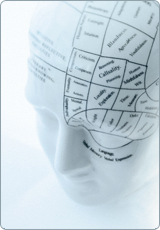I am still trying to pin down a focus on eHealth application for this, but IBM has opened an API (application program interface) for the Watson cognitive computing intelligence. This sounds like developers can open up smartphone applications to query the cognitive fireworks of the Watson computer that defeated the best humans in the world of TV game Jeopardy.
For eHealth, the API needs to tap into the right data content. IBM already has several services for this:
MD Buyline: This provider of supply chain solutions for hospitals and healthcare systems is developing an app to allow clinical and financial users to make real-time, informed decisions about medical device purchases, to improve quality, value, outcomes and patient satisfaction.Hippocrates powered by IBM Watson will provide users with access to a helpful research assistant that provides fast, evidence based recommendations from a wealth of data, to help ensure medical organizations are making the best decisions for their physicians' and patients' needs.Guess there's not much else you could ask for? But yes there is - Welltok:
Welltok: A pioneer in the emerging field of Social Health Management™, Welltok is developing an app that will create Intelligent Health Itineraries™ for consumers. These personalized itineraries, sponsored by health plans, health systems and health retailers, will include tailored activities, relevant content and condition management programs, and will reward users for engaging in healthy behaviors. Consumers who use Welltok's app -- CaféWell Concierge powered by IBM Watson – will participate in conversations about their health with Watson. By leveraging Watson's ability to learn from every interaction, the app will offer insights tailored to each individual’s health needs.
And there is more. Watson Path is diagnostic education program, and perhaps even a clinical decision support aid for diagnosis? All this from a game of Jeopardy?


 How it Works
How it Works
